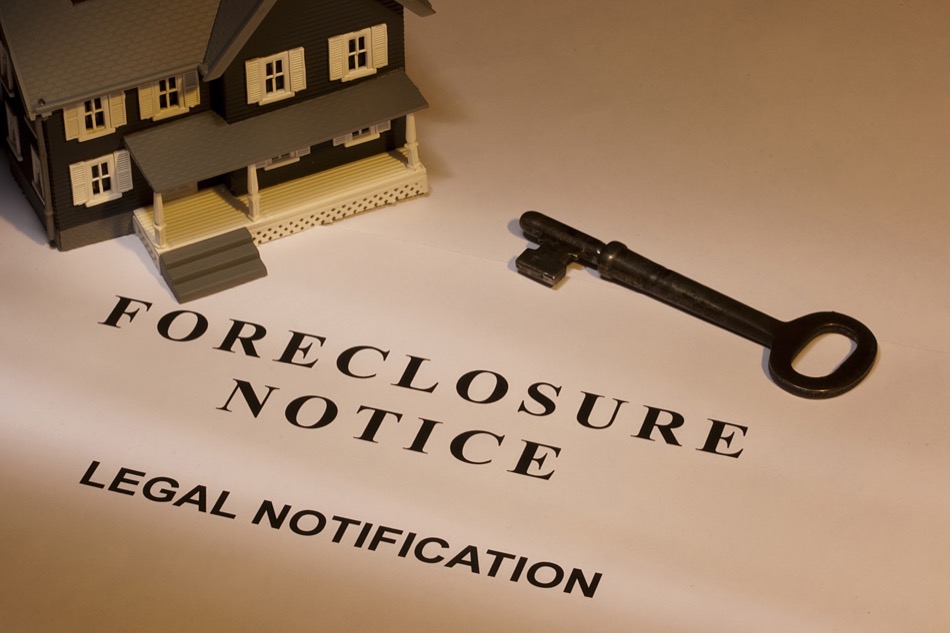What to Know When Navigating the Foreclosure Process
Posted by Ron Neal on Wednesday, July 17th, 2019 at 3:17pm.
 A change in financial circumstances can make it hard for a homeowner to make regular mortgage payments. Missed mortgage payments can result in a lender deciding to initiate the foreclosure process. What are Canadian homeowners to do when faced with foreclosure? Learn more about the foreclosure process and how to avoid it today.
A change in financial circumstances can make it hard for a homeowner to make regular mortgage payments. Missed mortgage payments can result in a lender deciding to initiate the foreclosure process. What are Canadian homeowners to do when faced with foreclosure? Learn more about the foreclosure process and how to avoid it today.
For informational purposes only. Always consult with an attorney before proceeding with any real estate transaction.
What Is Foreclosure?
There are many who have never had to deal with the foreclosure process. Homeowners may want to know more about this legal process whereby the lender or a mortgagee assumes ownership of the property. This occurs when a borrower has defaulted on their mortgage.
When a borrower agrees to take out a mortgage, they enter into a contractual agreement with the lender. They are responsible for making regular payments in accordance to the terms laid out. Issues doing so allows the lender to take back ownership of the property. Aside from not making mortgage payments, the foreclosure process may be triggered in other ways, such as not addressing significant damage, not paying condominium taxes or failing to insure the home.
Reasons for Foreclosure
There are many reasons why foreclosure may occur. Changing financial circumstances may happen, such as a medical emergency that makes it hard to maintain employment, job loss or substantial debt. It can be helpful to contact the lender when it looks like it will be difficult to make a future payment. The lender may be able to make other arrangements to help a homeowner avoid defaulting on their mortgage.
How Borrowers Learn About Foreclosure
Soon after a missed mortgage payment, a borrower should receive a letter. Each province and territory may have its own variation of the name of the letter and the foreclosure process itself. In some cases, the Demand Letter will be received which tells a homeowner that the foreclosure process has been started. The homeowner has the possibility to make amends and make up any arrears and fees in order to stop the continuance of this process.
Power of Sale or Judicial Foreclosure
An Esquimalt Canadian home owner may have to contend with the power of sale or judicial foreclosure. It is helpful to learn about each of these options as a homeowner may then know more about how to properly address each situation.
The power of sale is often the first choice in New Brunswick, Ontario, Prince Edward Island, Newfoundland and Labrador. More cooperation is encouraged in the power of sale. A homeowner who has defaulted on a payment for more than 15 days will receive a notice of sale. In such a situation, it is important to contact a lender to see whether it is possible to make the payment. This can prevent the start of the power of sale. However, it may not be possible if the details have already been received by their legal team. In Ontario, borrowers have an advantage with the power of sale in that they have 37 days to get the loan back into good standing. This period of time varies by province. Borrowers can also redeem any equity in a home until the time at which a home is sold. Options for homeowners include a second mortgage. A homeowner can then cover any missed payments and administrative or legal fees. If this is not possible, a borrower will be served with a statement of claim. Respond to it within 20 days to avoid a default judgment and having a writ of possession awarded to the lender.
Homeowners in Nova Scotia, Saskatchewan, Manitoba, Alberta, Quebec and British Columbia will need to content with judicial foreclosure. In a judicial foreclosure, the lender will file a statement of claim and a homeowner will receive a copy. Once served, a homeowner has 20 days to respond with either a demand for notice or a statement of defense. A homeowner should seek out advice from legal counsel and a mortgage expert to learn more about their options. It is important to submit a reply as not doing so will lead to a default judgment and make it more likely that a homeowner will lose their home. Those providing a response may be issued a redemption order which will allow for more time to fix the problem and get out of foreclosure. It may be possible to consolidate debt into a new first mortgage to get a mortgage loan back into good standing.
Avoid Getting Noted In Default
It is important to respond quickly to letters and get legal counsel. Not providing a reply will let a lender and the court continue with the foreclosure process and will not require additional involvement from the borrower. No additional notices will be sent to the homeowner but a homeowner will have less recourse, such as potentially extending the redemption period.
For informational purposes only. Always consult with a certified tax expert before proceeding with any real estate transaction.
Leave a Comment
 - Copy.png)
The Neal Estate Group is your #1 source for all of your Victoria BC real estate needs. Get in touch with us online or by phone at (250) 386-8181 to speak with a Victoria real estate buying or selling expert today. With decades of experience as a top selling Victoria REALTOR® and ranked in top 1% globally with over 5,000 transactions and $1 Billion SOLD, Ron Neal & The Neal Estate Group have the industry experience and market knowledge to help you make smart and informed buying or selling decisions.
